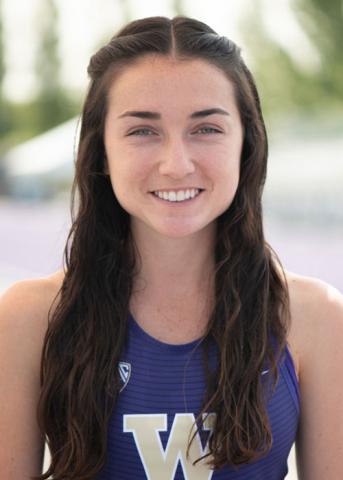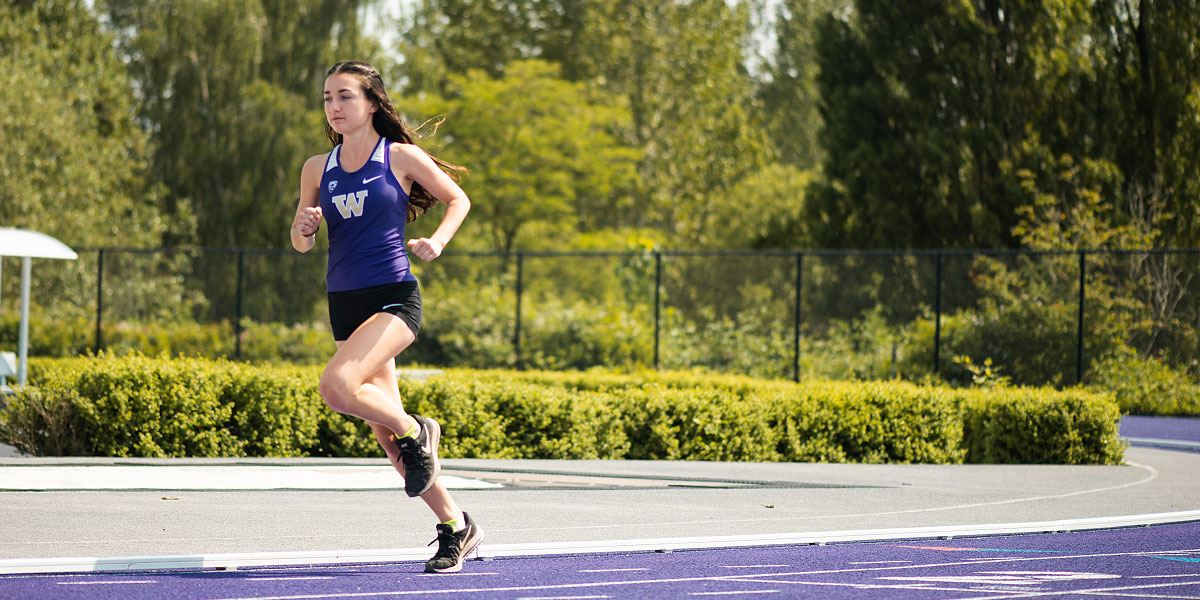
Why did you choose the UW?
Because of all the opportunities the school and the city have to
offer. I’m a cross-country and track athlete, and both sports teams here
are highly regarded and very competitive. I came on a visit and fell in
love with Seattle, amazed at the balance of metropolitan amenities and
natural wonders. The school seemed like the perfect combination of
rigorous athletics and respected academics.
Why minor in nutrition?
As a competitive athlete, food has always been a big part of my life.
The health of your body is integral to your success as a runner. If you
don’t know how to refuel properly after long workouts or consume a
well-rounded, nutrient-dense diet, your body isn’t capable of absorbing
the heavy training load and your performance will suffer. Minoring in
nutrition allows me to maximize my abilities as an athlete by learning
about the specific nutritional demands of the body.
How does it complement your core studies?
I hope to use my degrees to write books and to help impact policy.
I’m most passionate about tackling equity in education and the unequal
treatment of minorities in the criminal justice system. A nutritional
sciences minor broadens the scope of my knowledge, so I can focus on
these issues in a more well-rounded manner. It will also allow me to
understand the barriers to nutrition experienced by certain groups and
better equip me to remedy these disparities.

What motivates you about food systems and nutrition?
The opportunity to help improve the quality of someone else’s life.
Having access to a variety of economically priced, healthy foods
shouldn’t be a privilege, it should be a given.
What experiences at the UW have been most influential?
My Sports Nutrition class with Elizabeth Kirk was an influential
experience. It was tailored specifically to the nutritional needs of
athletes, so it helped me personally maximize my nutrition. My
Neighborhood Nutrition class with Professor Adam Drewnowski last year
was also valuable. It opened my eyes to the nutritional challenges faced
by many populations in the U.S. and around the world. It also inspired
me to make a difference in other people’s lives.
Do you have any interesting or unique facts about yourself to share?
I was a recipe taste-tester for Shalane Flanagan (an American long-distance runner) and Elyse Kopecky’s (a chef) cookbook Run Fast, Eat Slow.
I helped make some recipes and gave feedback on others before the
cookbook was released. Shalane has been my idol in the running world for
as long as I can remember. My name is mentioned in the Acknowledgements
section of the book.
What are your future goals?
To obtain my master’s in Public Policy or Social Work (hopefully at
the UW!). I want to work with nonprofits or philanthropies to
create policies and programs that assist minorities and impoverished
individuals. I’ve also thought about joining the Peace Corps.
What do you like to do for fun?
I like to read, write, practice yoga, cook and explore Washington’s endless supply of outdoor adventures.
What advice would you give prospective students?
Don’t be afraid if you don’t have a clear plan. I had no idea what I
wanted to do when I got to the UW. Now, I can’t seem to pick enough
areas of study. For nutrition specifically, come to class engaged and
eager to learn, and you’ll have no trouble succeeding and having a
positive experience.